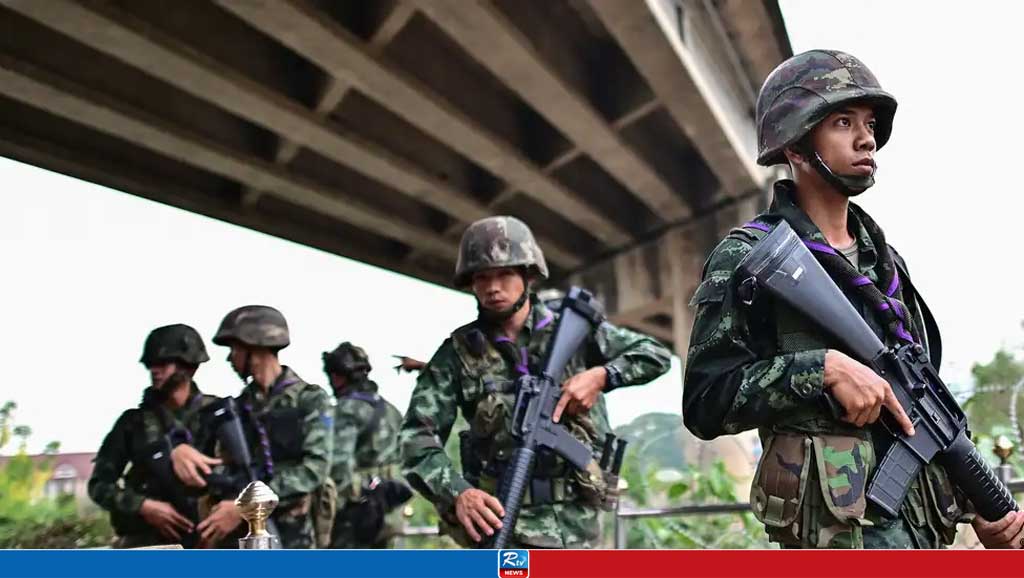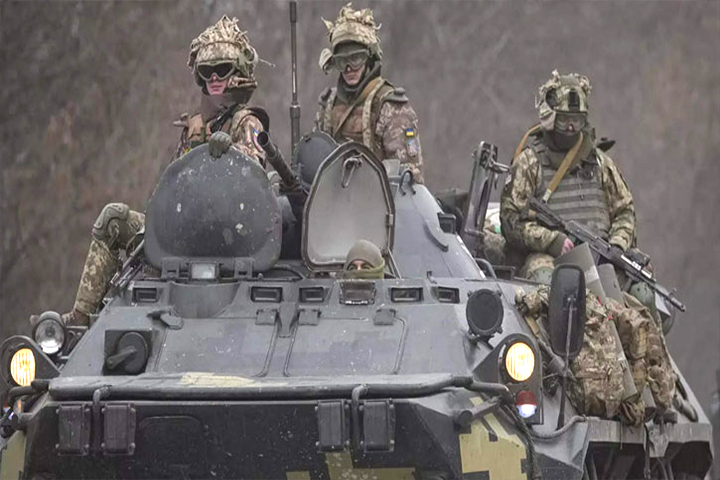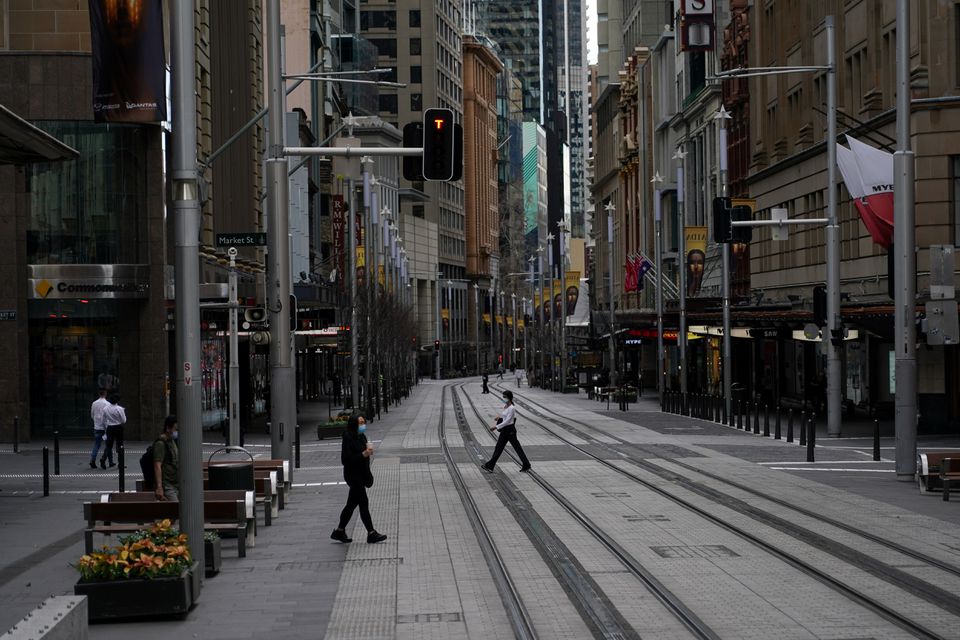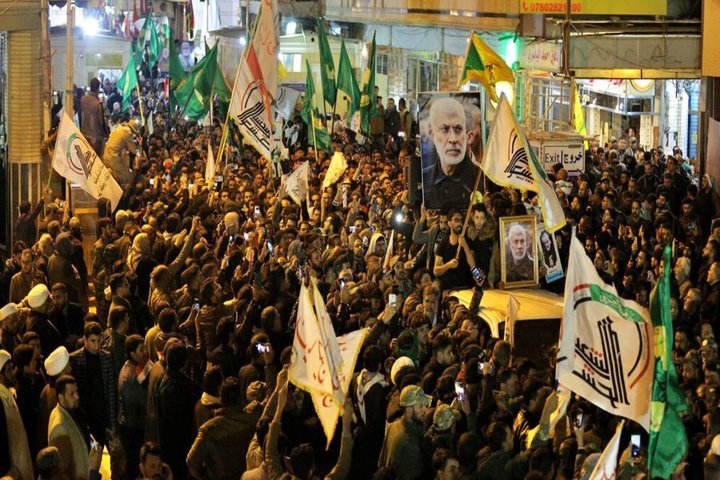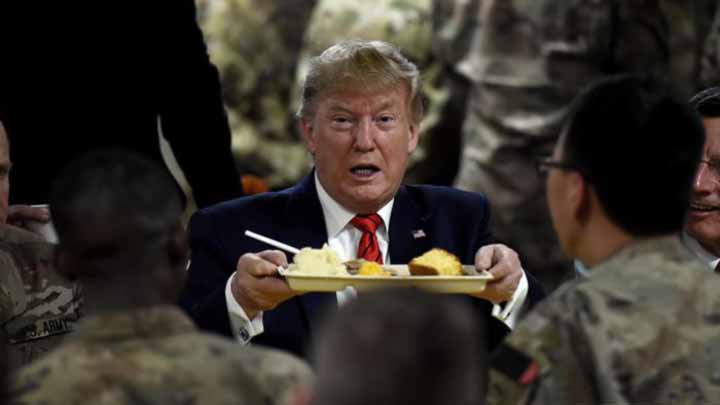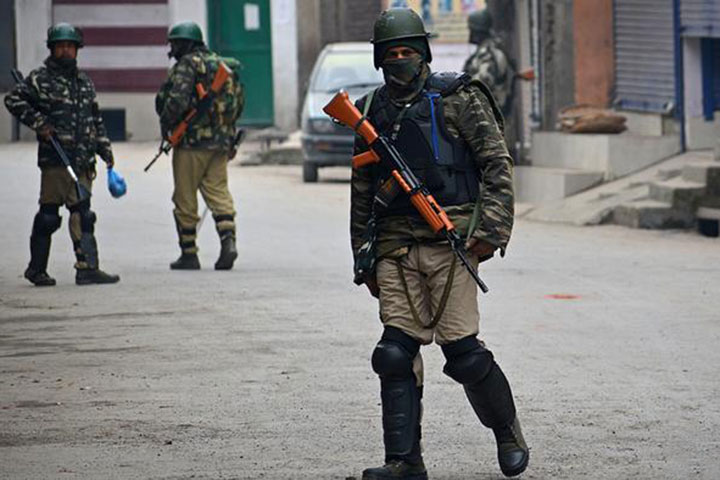Ukrainian, Russian troops fight in streets of Kyiv
Ukrainian forces repulsed a Russian attack
on Kyiv but "sabotage groups" infiltrated the capital, officials said
Saturday as a defiant President Volodymyr Zelensky vowed Ukraine would never
give in.
On the third day of an invasion that Ukraine said has killed 198 civilians
including three children, Russia also brushed off the barrage of Western
sanctions and said it had fired cruise missiles at military targets.
Wearing olive green military-style clothing and looking tired but
determined, Zelensky spoke in a video message posted on his Twitter account.
"I am here. We will not lay down any weapons. We will defend our state,
because our weapons are our truth," he said.
"Our truth is that this is our land, our country, our children and we will
protect all of this."
Russian President Vladimir Putin unleashed a full-scale invasion that has
forced tens of thousands to flee their homes and sparked fears of a wider
conflict in Europe.
"We thought something like this might happen but we were hoping until the
end that it wouldn't," Irina Butyak, a 38-year-old teacher, told AFP as she
took shelter in a basement in Kyiv, where explosions were heard through the
night.
"We were hoping that common sense and common decency would prevail. Well,
it didn't," said Butyak, who hoped she would be able to escape soon to
western Ukraine.
In Paris, French President Emmanuel Macron warned that the world must brace
for a long war.
"This crisis will last, this war will last and all the crises that come
with it will have lasting consequences," Macron said, adding: "We must be
prepared".
After speaking to Macron, Zelensky tweeted to thank "partners" for sending
weapons and equipment. "The anti-war coalition is working," he said.
- Clashes in the capital -
AFP reporters in Kyiv heard occasional blasts of what soldiers said were
artillery and Grad missiles being fired in an area northwest of the city
centre.
There were also loud explosions in the centre.
Emergency services said a high-rise apartment block was hit by shelling
overnight, posting a picture that showed a hole covering at least five floors
blasted into the side of the building. Kyiv's mayor, Vitaly Klitschko, said
that the building had been hit by a missile.
"The night was difficult, but there are no Russian troops in the capital,"
he said.
"The enemy is trying to break into the city, in particular from Gostomel,
Zhytomyr, where the aggressors are neutralized," he said, referring to two
settlements to the northwest and west of the city.
"Now in Kyiv there are, unfortunately, sabotage groups, there were several
clashes, shootings," he said.
In a northern district of the city, AFP on Friday saw a dead man in
civilian clothes lying sprawled on the pavement as nearby medics rushed to
help another man whose car was crushed by an armoured vehicle.
Ukraine's defence ministry said "two enemy targets were shot down" --
identifying them as a Russian SU-25 helicopter and a military bomber -- near
the separatist zone in the east of the country.
A Russian Ilyushin Il-76 transport plane had also been "knocked down" near
Vasylkiv, a town roughly 30 kilometres (19 miles) southwest of Kyiv, the
ministry added on its official Facebook page.
Zelensky's aide Mykhailo Podolyak said more than 3,500 Russian soldiers had
been killed and nearly 200 captured, without providing evidence.
Moscow has yet to report on casualties.
- 'Point of no return' -
The United States, Canada, Britain and the European Union doled out further
sanctions on Russia on Friday, including against Putin himself and Foreign
Minister Sergei Lavrov.
Russia said the sanctions against the pair were "a demonstration of the
complete impotence of the foreign policy" of the West.
"We have reached the line after which the point of no return begins,"
Russian foreign ministry spokeswoman Maria Zakharova said.
Moscow also vetoed a UN Security Council resolution that deplored "in the
strongest terms" Russia's invasion, while China, India and the United Arab
Emirates abstained.
While sanctions have focused on finances, travel and the economy, there
have also been repercussions in the worlds of culture and sports.
In the latest development, Poland on Saturday said it would refuse to play
its 2022 World Cup play-off against Russia on March 24.
But, despite Zelensky calling on Western allies to expel Moscow from the
SWIFT banking transfer system, numerous EU countries, including Germany,
Hungary and Italy, have been reluctant over fears Russia could cut off gas
supplies.
- Tens of thousands fleeing -
When he announced the assault in a pre-dawn television statement on
Thursday, Putin called it a "special military operation" aimed at defending
Russia-backed separatists in the east.
Russia's communications regulator on Saturday told independent media to
remove reports describing it as an "assault, invasion, or declaration of
war".
In a statement, Roskomnadzor accused the media outlets of spreading
"unreliable socially significant untrue information" about the shelling of
Ukrainian cities by the Russian army and civilian deaths.
The conflict has rattled eastern members of the EU and the US-led military
alliance NATO which were once dominated by Moscow.
NATO said it was deploying its rapid response forces for the first time to
bolster defences on its eastern flank.
Meanwhile, Poland has been taking in thousands of Ukrainian refugees who
have been arriving by train, in cars and on foot in the border city of
Przemysl.
Polish Deputy Interior Minister Pawel Szefernaker on Saturday said 100,000
people have crossed the border.
"From the onset of warfare in Ukraine through today, along the entire
border with Ukraine, 100,000 people have crossed the border from Ukraine into
Poland," Szefernaker told reporters in the border village of Medyka,
southeastern Poland.
The UN said more than 50,000 Ukrainians had fled the country in the past
two days, calling for "safe unimpeded access" for aid operations.
About 100,000 people are believed to be internally displaced.
Source: AFP/BSS
AH
26 Feb 2022,17:21















 Live Tv
Live Tv
